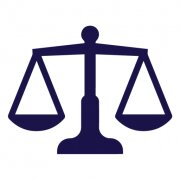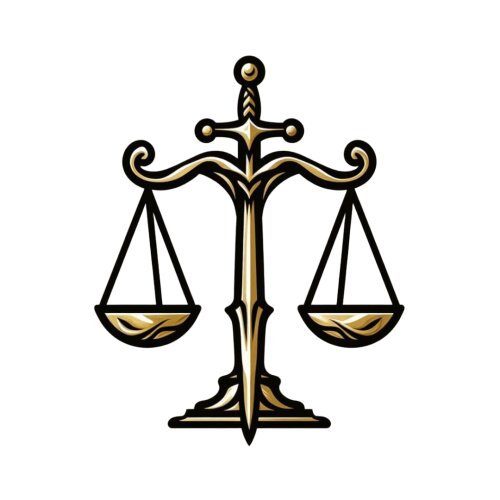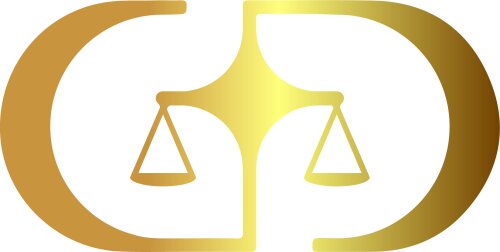Best Whistleblower & Qui Tam Lawyers in Bahía Blanca
Share your needs with us, get contacted by law firms.
Free. Takes 2 min.
List of the best lawyers in Bahía Blanca, Argentina
About Whistleblower & Qui Tam Law in Bahía Blanca, Argentina
Whistleblower and Qui Tam laws are legal frameworks designed to protect individuals who report illegal activities, such as fraud, corruption, or misuse of government resources. In Bahía Blanca, Argentina, these laws are primarily oriented towards safeguarding the public interest by encouraging transparency and accountability within both public and private sectors. Although Qui Tam actions are more common in countries like the United States, Argentina has incorporated various protections for whistleblowers through anti-corruption laws. Local regulations strive to shield whistleblowers from retaliation and provide pathways to report wrongdoing within municipal, provincial, and national institutions.
Why You May Need a Lawyer
Seeking legal advice is crucial for anyone considering acting as a whistleblower or participating in a related legal case in Bahía Blanca. Reporting misconduct can be a complex and challenging process that may expose you to legal and professional risks. Common situations where legal assistance is essential include:
- Witnessing corruption, bribery, or fraud in a public office or private company.
- Experiencing retaliation at your workplace after reporting wrongdoing.
- Receiving threats or harassment for disclosing information.
- Needing to understand your legal protections and rights as a whistleblower.
- Assisting in investigations carried out by anti-corruption agencies.
- Participating in court cases related to fraud against government entities.
- Facing legal claims for defamation or breach of confidentiality after reporting misconduct.
A lawyer well-versed in whistleblower and anti-corruption law can help you navigate these situations, prepare the necessary documentation, and act as an essential advocate during investigations or legal proceedings.
Local Laws Overview
Bahía Blanca, as part of Argentina, is subject to national and provincial frameworks that address whistleblowing and anti-corruption. The key aspects to consider include:
- National Law No. 27,401: Established corporate criminal liability and encourages the creation of internal compliance and whistleblowing systems in companies.
- Argentine Penal Code: Contains provisions for public sector fraud, bribery, and other corruption offenses.
- Anti-Corruption Office (Oficina Anticorrupción): Acts as a central body for receiving reports of corruption and offering guidance to whistleblowers.
- Employment Protections: Labor laws protect employees against unfair dismissal or discrimination based on whistleblower activities but enforcement can require legal action.
- Local Procedures: The Municipality of Bahía Blanca may have internal protocols to receive reports, handle investigations, and ensure anonymity wherever possible.
Qui Tam actions, which allow private citizens to bring lawsuits on behalf of the state and share in fines or recoveries, are not fully developed in Argentina. However, local authorities are progressively encouraging public reporting of irregularities and whistleblowing as a way to strengthen transparency.
Frequently Asked Questions
What is a whistleblower?
A whistleblower is someone who reports wrongdoing or illegal activities, such as corruption or fraud, within an organization or government entity.
Are there specific rewards for whistleblowers in Argentina?
Argentina does not currently provide financial rewards for whistleblowers similar to those offered in Qui Tam lawsuits in other countries. Protection is focused mainly on shielding against retaliation.
Can I report misconduct anonymously?
Many institutions and the Anti-Corruption Office allow anonymous reporting, but remaining anonymous can affect the ability to follow up or offer full protection.
What types of wrongdoing can I report as a whistleblower?
Typical cases include bribery, embezzlement, misuse of public funds, conflicts of interest, and other violations of ethical or legal obligations.
What protections exist for whistleblowers in Bahía Blanca?
National and local laws provide certain protections against dismissal, discrimination, and retaliation, though enforcement may require legal proceedings.
What should I do if I experience retaliation for whistleblowing?
Document any incidents of retaliation and consult with a lawyer immediately to protect your rights and seek legal remedies.
Who investigates reports of corruption and misconduct?
Reports are typically investigated by the relevant government body's internal affairs unit, local agencies, or the national Anti-Corruption Office.
Is whistleblowing protected for both public and private sector employees?
While public sector protections are clearer, private sector employees are increasingly being covered under compliance and anti-corruption regulations.
Do I need evidence before making a report?
Having documented evidence strengthens your case, but you can report suspicions of wrongdoing even if you do not have all the details.
How can a lawyer help with a whistleblower case?
A lawyer can clarify your rights, help you document your report, ensure legal procedures are followed, represent you in disputes, and pursue protection or compensation claims if needed.
Additional Resources
Several organizations and governmental agencies provide information or assistance on whistleblower matters in Bahía Blanca and across Argentina. These include:
- Oficina Anticorrupción (Anti-Corruption Office) - Receives and processes corruption reports and protects whistleblowers.
- Ministerio Público Fiscal (Public Prosecutor's Office) - Investigates criminal complaints including those related to corruption or fraud.
- Defensoría del Pueblo de Bahía Blanca - Offers guidance for citizens reporting irregularities in government operations.
- Local bar associations and legal aid societies - Provide connections to lawyers experienced in employment and anti-corruption law.
- Non-profit organizations dedicated to transparency and ethical governance.
Next Steps
If you need legal assistance in a whistleblower or related anti-corruption matter in Bahía Blanca, consider the following steps:
- Gather relevant documents and evidence supporting your claims.
- Contact a lawyer specializing in whistleblower protection, labor law, or anti-corruption cases.
- Consider anonymous reporting if you fear immediate retaliation, but remember full protection usually requires you to identify yourself.
- Contact local agencies such as the Anti-Corruption Office if your case involves government entities.
- Discuss your legal options, possible outcomes, and necessary precautions with your lawyer before taking action.
Whistleblowing can be a brave and impactful action. With the right legal guidance and support, you can help protect the public interest and defend your rights.
Lawzana helps you find the best lawyers and law firms in Bahía Blanca through a curated and pre-screened list of qualified legal professionals. Our platform offers rankings and detailed profiles of attorneys and law firms, allowing you to compare based on practice areas, including Whistleblower & Qui Tam, experience, and client feedback.
Each profile includes a description of the firm's areas of practice, client reviews, team members and partners, year of establishment, spoken languages, office locations, contact information, social media presence, and any published articles or resources. Most firms on our platform speak English and are experienced in both local and international legal matters.
Get a quote from top-rated law firms in Bahía Blanca, Argentina — quickly, securely, and without unnecessary hassle.
Disclaimer:
The information provided on this page is for general informational purposes only and does not constitute legal advice. While we strive to ensure the accuracy and relevance of the content, legal information may change over time, and interpretations of the law can vary. You should always consult with a qualified legal professional for advice specific to your situation.
We disclaim all liability for actions taken or not taken based on the content of this page. If you believe any information is incorrect or outdated, please contact us, and we will review and update it where appropriate.










